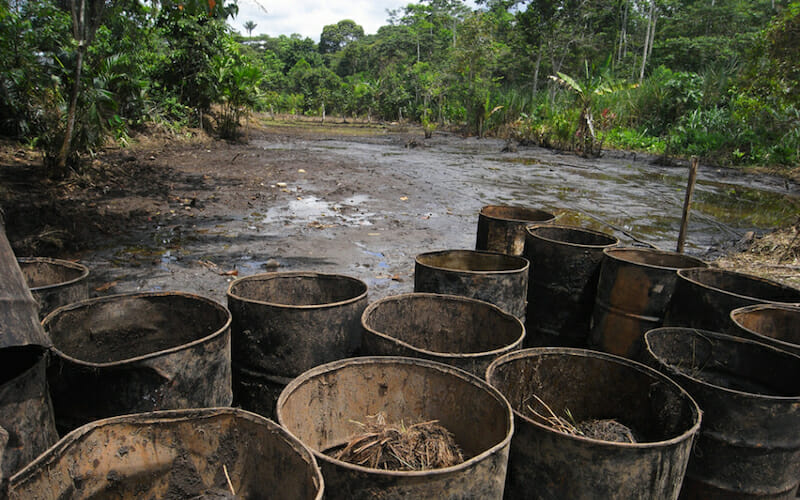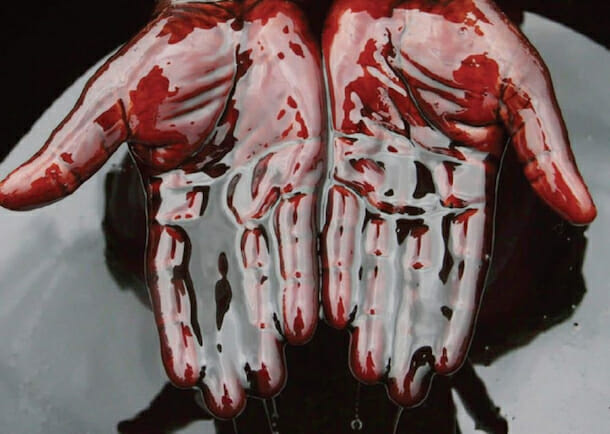
To Whom Does the World’s Oil Belong?
Donald Trump tweeted something interesting recently. Replying to the mass protests in Iran, the US president wrote that “The people are finally getting wise as to how their money and wealth is being stolen and squandered.” Trump’s point is correct on this issue. Vice-president Mike Pence dubbed that Iran’s “unelected dictators” really have been stealing the oil that belongs to the people and spending the money for their own aims, including “to fund terrorism abroad.”
Nevertheless, although Trump is correct about Iran, the US president’s tweets have been too selective. In adjacent Saudi Arabia, ‘an ally of the US,’ the elite squanders public money gained from selling off the country’s oil. There, as in Iran and other countries, the people’s wealth is being “taken and wasted” by the few who enhance themselves from the profits.
This is the major story that almost nobody is reporting. In many countries around the world, totalitarian regimes and armed groups are selling off the oil that belongs to the people, and using the money to back fraud, repression, corruption, conflict and terrorism.
Oil is the world’s largest traded commodity by far, so the amounts going to these despots and militias are enormous: hundreds of billions of dollars a year. Numerous crises in the headlines over the past few years in Nigeria, Syria, Iraq, Libya, Angola and more – have been driven by money from selling oil stolen from citizens.
Dark side of the oil war
The unusual thing about this story is that almost everybody agrees that a country’s oil belongs ultimately to its citizens. In the US, this is a bipartisan idea, stated by both George W. Bush and Bill Clinton. And it is easy to find leaders of many other countries stating, “The oil belongs to the people” – the leaders of Mexico, Sudan, Qatar, Venezuela and even Papua New Guinea have declared this. The belief is also enshrined in heaps of national laws and constitutions. A huge majority of the people in the world live in a country that has signed one of the primary human rights treaties, which say that all citizens have the right to control their country’s natural resources.
If the oil belongs to the people, then nobody should be able to sell it off without their possible consent. Leif Wenar’s Blood Oil, oil sold without the consent of the people accounts for more than 50% of the world’s trade. Literally, more than half of the oil in global trade is stolen goods.

This oil is being stolen not only from headline countries, but also from areas like Equatorial Guinea where the president has allegedly had his political opponents tortured in one of the world’s cruelest prisons. In Angola, the rich live in luxury while the country’s children suffer and die from poverty at one of the highest rates in the world.
Outdated laws
Some experts see the source of the issue in an outdated law left over from the days of the Atlantic slave trade which makes it legal to buy the natural resources of other countries from whomever controls them by force.
The apparent solution would be to make it illegal to buy oil from anybody who is not at least minimally accountable to the citizens of his country.
That might sound problematic but, in fact, these reforms have already begun. A senator in Brazil has recently introduced legislation which would make it illegal to import oil from authoritarian regimes – and would thwart its national oil company from signing any new contracts with autocratic regimes.
Unfortunately, in today’s world oil is intertwined with international politics, campaigns, stark pillaging and egotistical imperialists. In fact, oil is under their control. Whenever they wish, they reduce oil prices, increase or decrease oil production, include a country in or push them out of their circle.
What the mainstream media is promoting is that one should not use oil as a weapon because this is not equitable. Oil, like other natural resources, belongs to people and they should be able to use the revenue for their own benefit.
